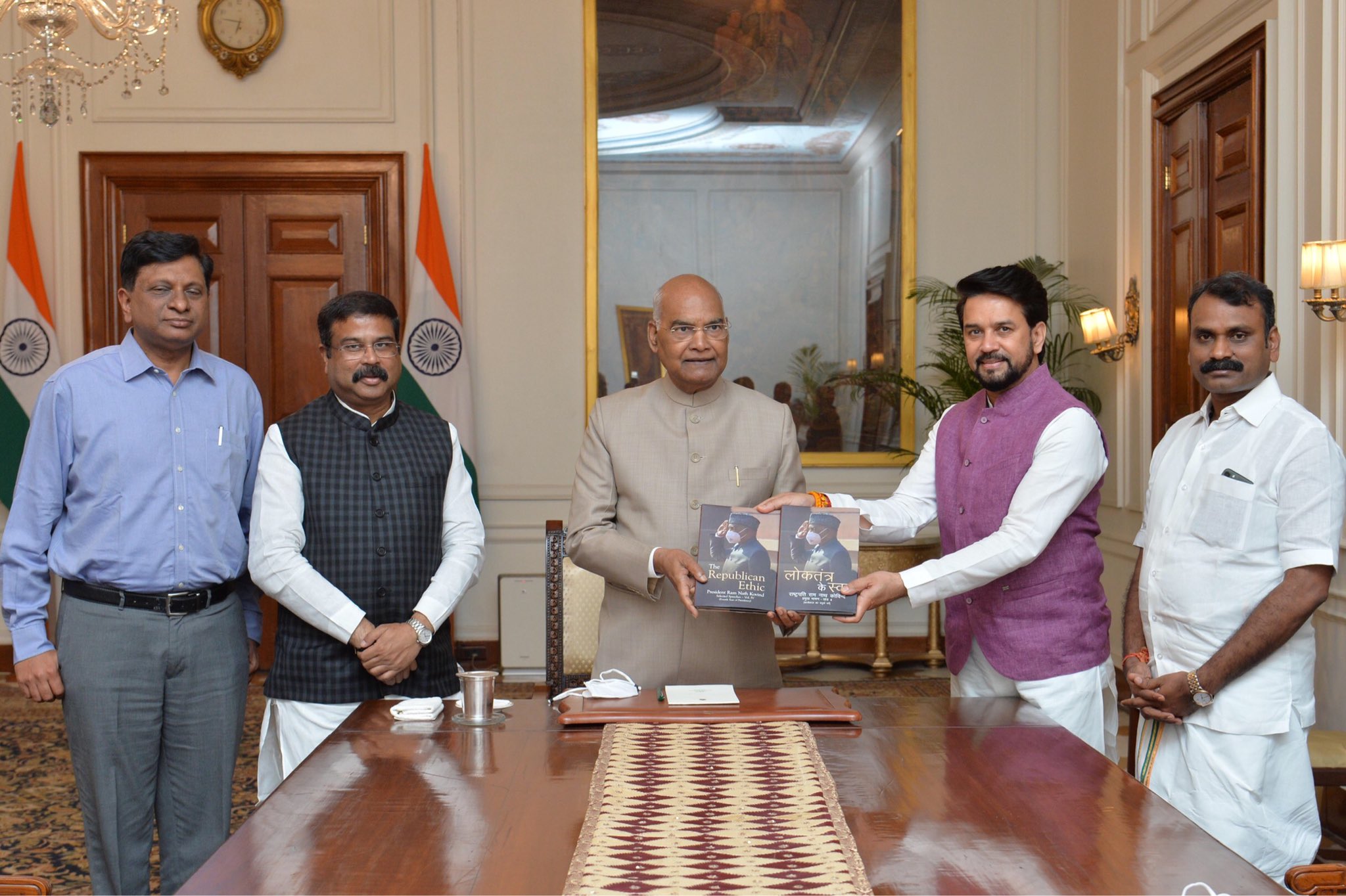The Election Commission has notified (announced) the dates and procedure for the election of the next President of India.
Shri Ram Nath Kovind’s term ends on 24th July, 2022. A new president must be elected before that.
Accordingly, the election for the President of India will he held shortly.
Let’s understand a few important points about this election.
Who can vote
As per the Article 54 of the Constitution of India, the President is elected by the members of the Electoral College consisting of:
(I) elected members of both Houses of Parliament, and
(II) elected members of the Legislative Assemblies of all States including National Capital Territory of Delhi and the Union Territory of Puducherry.
The nominated members of either Rajya Sabha and Lok Sabha or Legislative Assemblies of the States are not eligible to be included in the Electoral College and therefore, they are not entitled to participate in the election.
Similarly, members of the Legislative Councils are also not electors for the Presidential election). The value of votes of the elected members of State Legislative Assemblies and both Houses of Parliament is governed by Article 55(2) of the Constitution.
The total value of votes for MLAs for 16th Presidential Election is 543231.
The total value of votes for MPs is 543200.
The total value of vote of electors for the Presidential Election, 2022 is 1086431, split roughly between the MLAs and the MPs. The MLAs have 32 more vote values than the MPs.
How to vote
Article 55 (3) of the Constitution says that the voting will be held by secret ballot.
Every voter can indicate a ranking of the order of their preference. The candidate they most like will be ranked one, and 2,3,4 onwards from there.
The marking can be in any Indian language or in the Roman numerals but must be in numbers only. It cannot be written in words.
The first preference must be marked by the voter. The rest of the ranking is optional. A voter may rank only 2 candidates, or all of them, in the order of their preference.
The pens will be provided to the voters on the spot and they must use only these pens to mark the vote. Using any other pen disqualifies the vote.
Returning Officer
The Returning Officer is the main official for any election. While the Election Commission is the body responsible for conducting elections, the Returning Officer is Secretary General of the Lok Sabha and the Rajya Sabha, by rotation. (For one election, it is the Secretary General of the Lok Sabha, and for the next, it has to be the Secretary General of the Rajya Sabha).
This time, the Secretary General of the Rajya Sabha is the returning officer.
No Whip rule
All political parties can issue instructions to their members on how they should vote in the Parliament or Assembly on a given motion.
Such an order is called a whip.
Not following the whip can lead to expulsion of the MLA/MP from the party. This means that they will also lose their seat.
However, in Presidential election, no party can issue a whip to its legislators or MPs.
Counting of votes
Counting of votes will be held in New Delhi under the supervision of the Returning Officer.
The Schedule (Dates and Timeline)

Image: President Ram Nath Kovind receiving copies of the book of his speeches.

